Those who are fond of watching detective serials and movies want to become a detective in the future as well. Assuming to be like Sherlock Holmes is normal for us after we have known his character. But this dream seems to be forgotten and we will work to more realistic goals. Since crime rate is increasing these days, more detectives are needed in order to solve them. This is the reason why some police officers are trying to be like Sherlock Holmes. For those of you who still haven’t given up on your detective dreams, here is some information on the exciting career of being a detective.
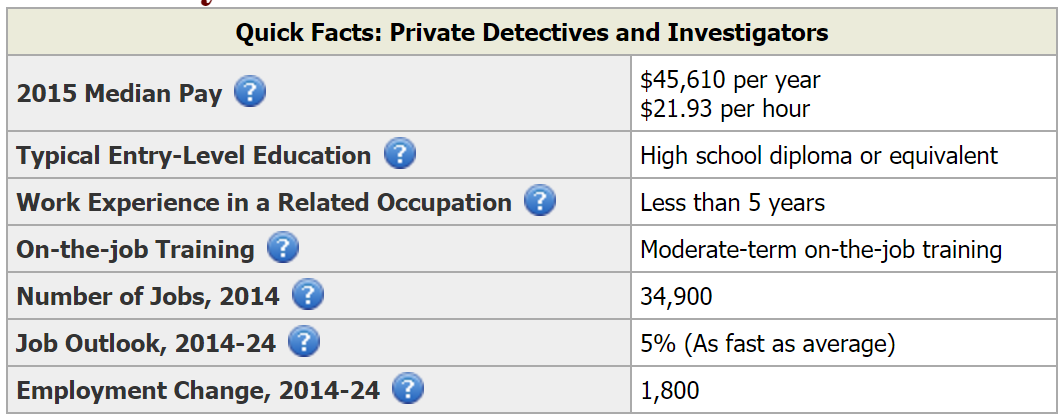

Table Of Contents
- Average Detective Salary
- Detective Career Outlook
- How To Become A Detective
- Detective Job Description
How Much Does A Detective Make
The basis of a detective’s salary at first will depend on his or her employer. An investigator who is employed by the state earns more than a private one in most cases. This is mostly due to steady work that they receive compared to the intermittent work of a private detective.The reason behind this is they always have work to do compared to a private detective. The national average for a state-employed detective is $76,000. Whereas the average salary for a private detective can be around $45,000. The factors that affect a PI’s salary will be discussed later. For now, let us look at the factors that affect the salary of state employed investigators.
[asd_program_button /]Size of population
Just like police officers, the income of a detective is dependent on the city’s population. The number of cases to be handled by a detective increases if the city is more populated. Therefore, the salary increases as well. The crime rate also affects the salary of an investigator. For example, the average salary for someone in the LA police department ranges from $44,000 to $88,000. In contrast, for someone in Miami Police department, the average salary tends to be around $86,000 to $107,000.
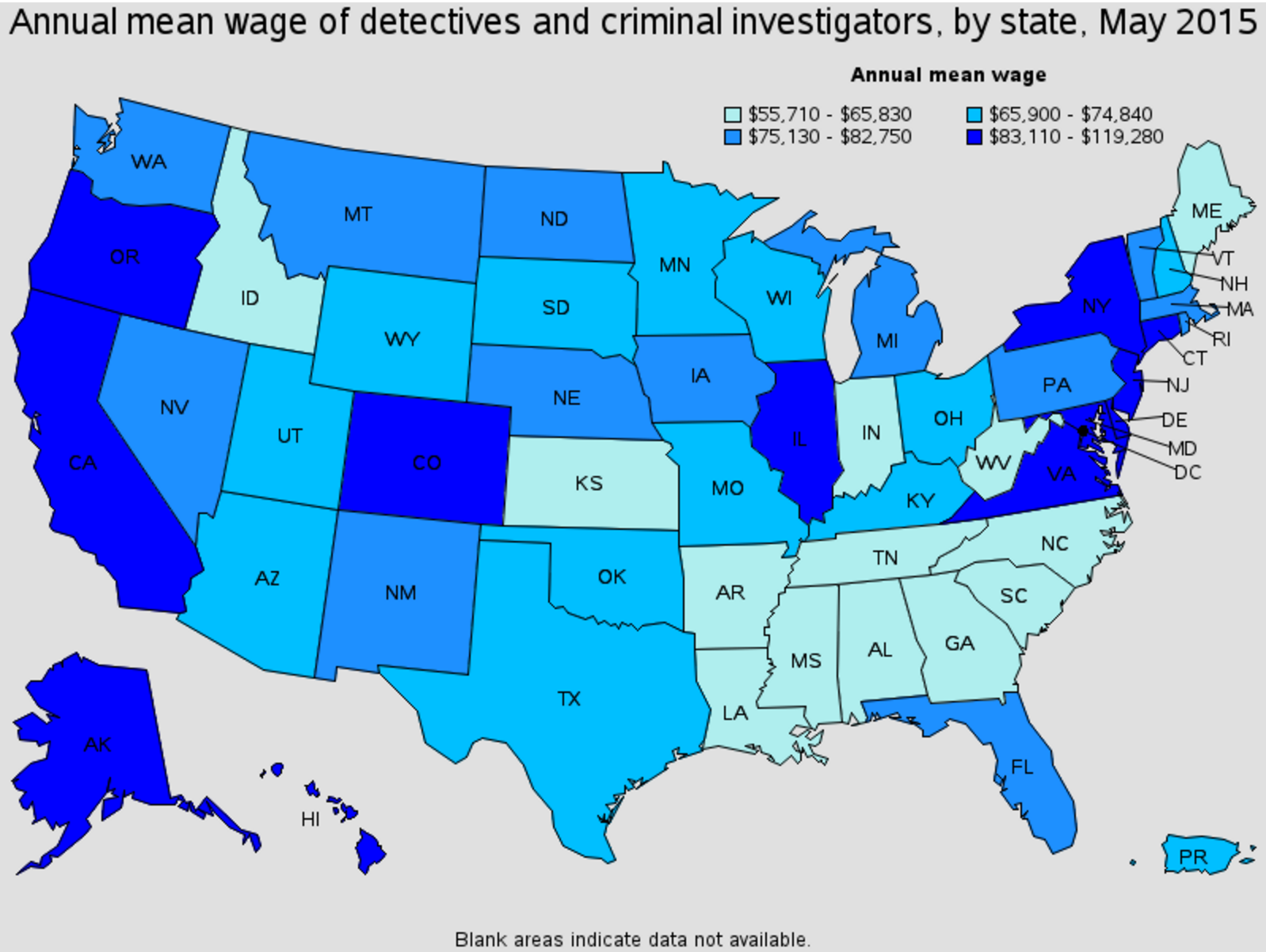
Place assigned or working
Crime rate and population of the place are closely related to the location. But there is another factor, which is the cost of living. If the place has higher cost of living, the detective’s salary will also be higher. This is true with the case of private investigators as well. District of Columbia, Alaska, and New Jersey all pay 6-figure salaries with District of Columbia paying as much as $116,000.
Education background
For any police job (except at the federal level), a high school degree is sufficient. Though this rules sometimes varies with state, most states do not require higher education certificates. But, the importance of higher education is considered by some states and departments that is why a degree after high school is a factor that affects the salary of the officers and detectives. This can be an associate, bachelor or a master’s degree. Depending on your degree, you might be paid more.
Work Experience
Your length of stay in the field will be a consideration on how much you will earn as an investigator. Usually, people see an increase of up to $15,000 with 20 years of experience if they do not get promoted. However, with promotions, if you reach the post of Police Chief, you can earn about $180,000 annually.
Dover Private Investigators
The number of cases and solving them are the bases of a private investigator’s salary. As mentioned before, the location can affect the price along with the many other factors such as the amount of discretion needed, the amount of danger involved, extra equipment required and many other things. Clients usually present their problem to the investigator and then it is up to them to quote a price for the job.
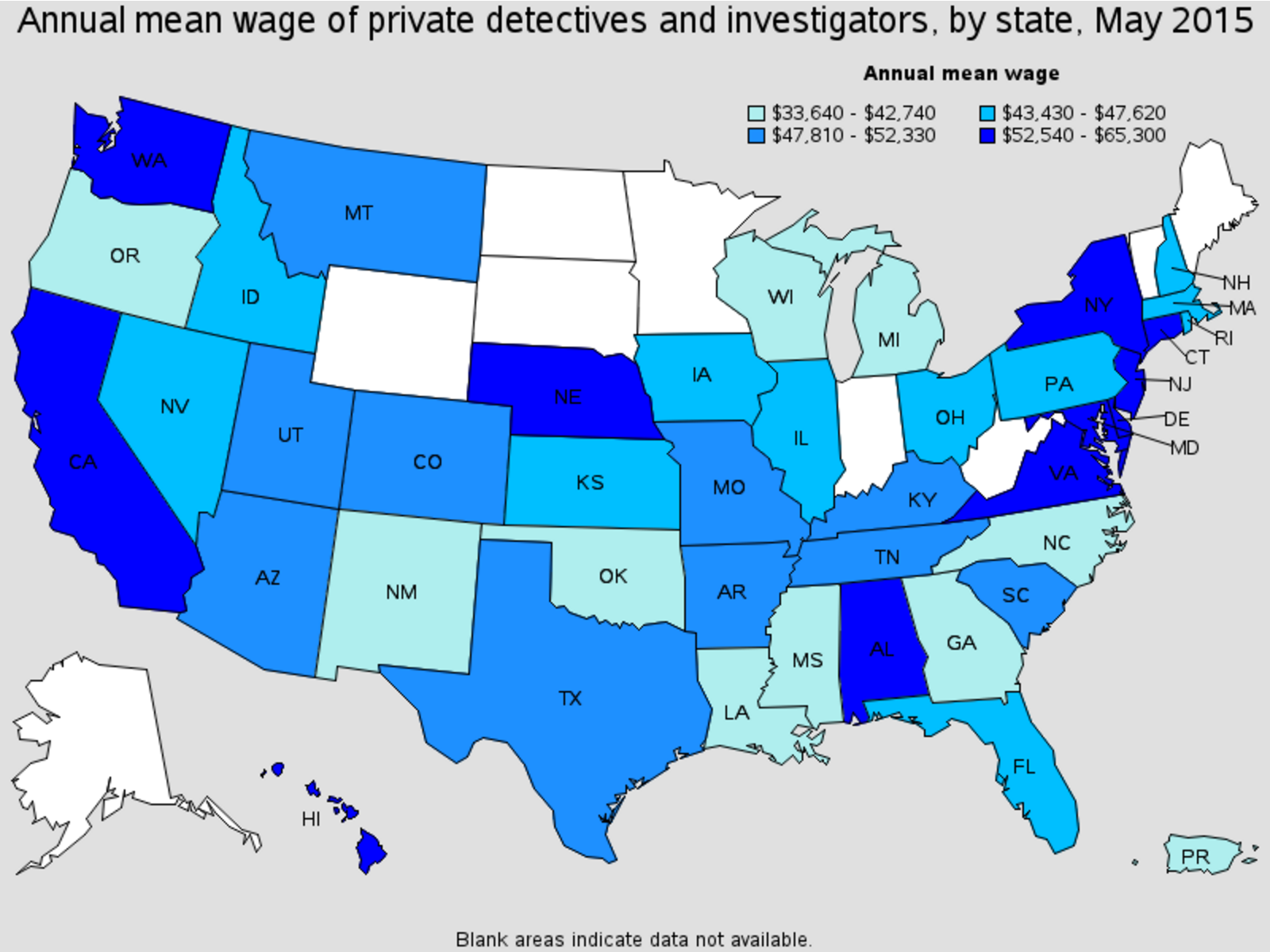
As you can see, the income of a state-employed detective is steady and can be increased by various means. On the other hand, a private investigator’s salary is quite unpredictable and will only increase if he or she is already popular or known. Now that you have the financial facts, you can decide which path to choose.
Career Outlook of a Dover Detective
First thing first, we will be talking about career growth in this field. There were about 106,000 public detectives or criminal investigators on record in 2015. On the other hand, there were only about 30,000 private investigators holding a job at the same time. In this industry, the predicted growth of private detectives is about 15%. This goes to show that by 2025, 1,500 new jobs will be opened. This is the same growth rate of 5% in different sectors. This figure is only 4% for public investigators. This goes to show that 4,000 more jobs as a criminal investigator is expected in 2025. This is also considered as the average growth rate.
[asd_program_button /]The employment increases steadily because the population increases. Protection should be done to a lot of people and more criminals should be caught as the population increases. But due to the strict implementation of laws and technology are more advanced, the crime rate is not increasing that much. Hence, there is a balance in each other, which leads to average growth in both careers.
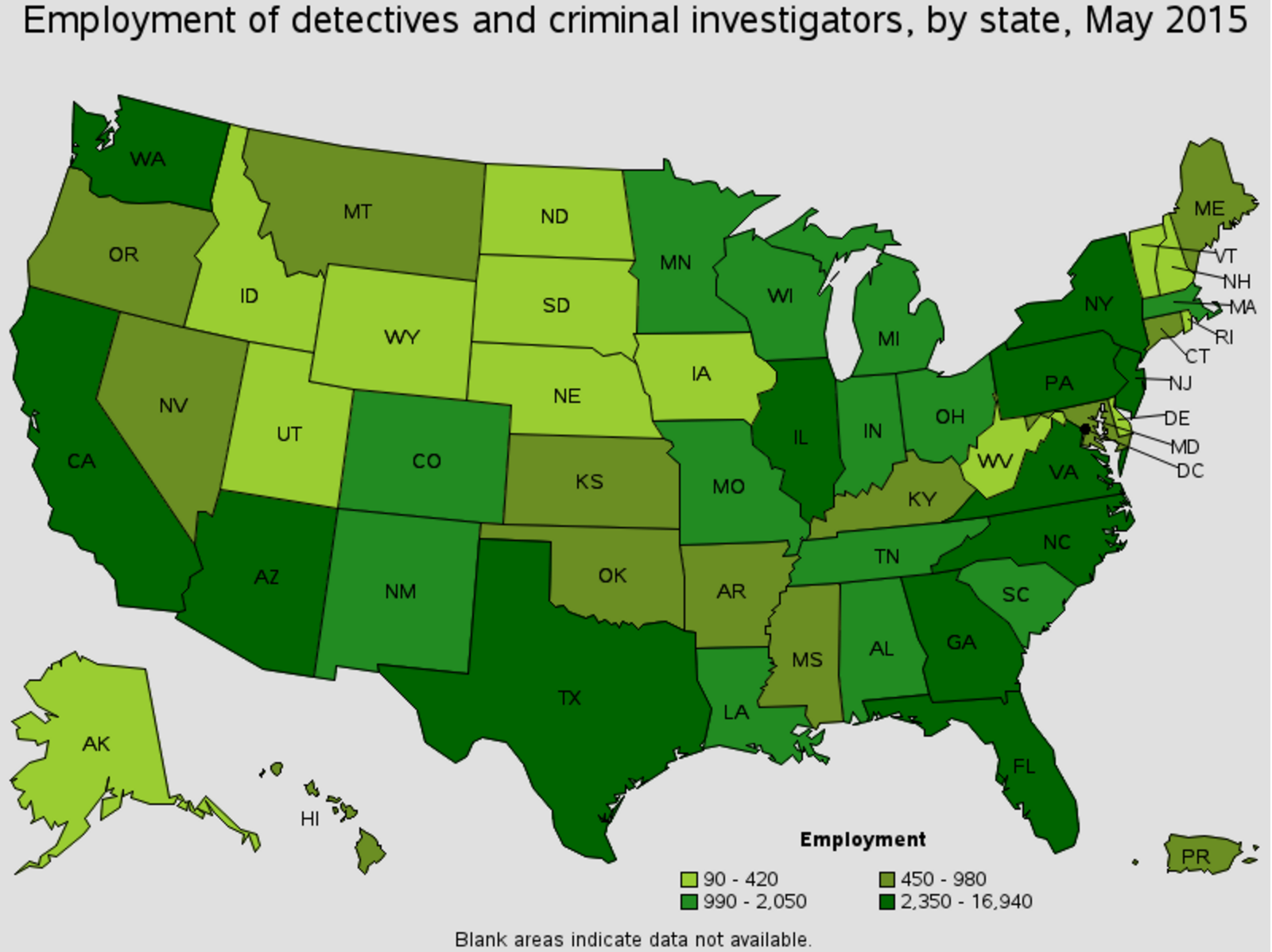
In terms of location, Texas, California and New York have the highest number of Criminal/Law Enforcement Investigators. The employment in western states and Texas are higher that to that of the eastern parts. There are a lot of private detectives hired in California, Texas and Florida with the southern states compared in the northern part.
Let’s move on to the industries that hire most of these two professionals. As clear as day, The Local, State government and the Federal branch employ the most number of criminal investigators. Security Services, Consulting services are the ones who usually hire private detectives and the local government need them for consultation on a few cases.
When it comes to finance, criminal investigators are paid more compared to the private ones. Criminal investigators receive $80,000 as average salary annually while Private investigators earn $52,000 only. When you combine the aspects of geography and finance, you see that District of Columbia, Alaska, and New Jersey paid the most (6 figure salaries) for Public investigators. It is in Alabama, Nebraska, and New Jersey were private detectives are paid most.
Private industries that employ most do not pay the highest in comparison with the different industires. Private detectives are paid most in Electromedical, Navigational, Power generation, Metal Product forming and other such industries because of the most sensitive information that needs to be protected. Federal agencies, postal services, and educational institutes are paying public investigators most.
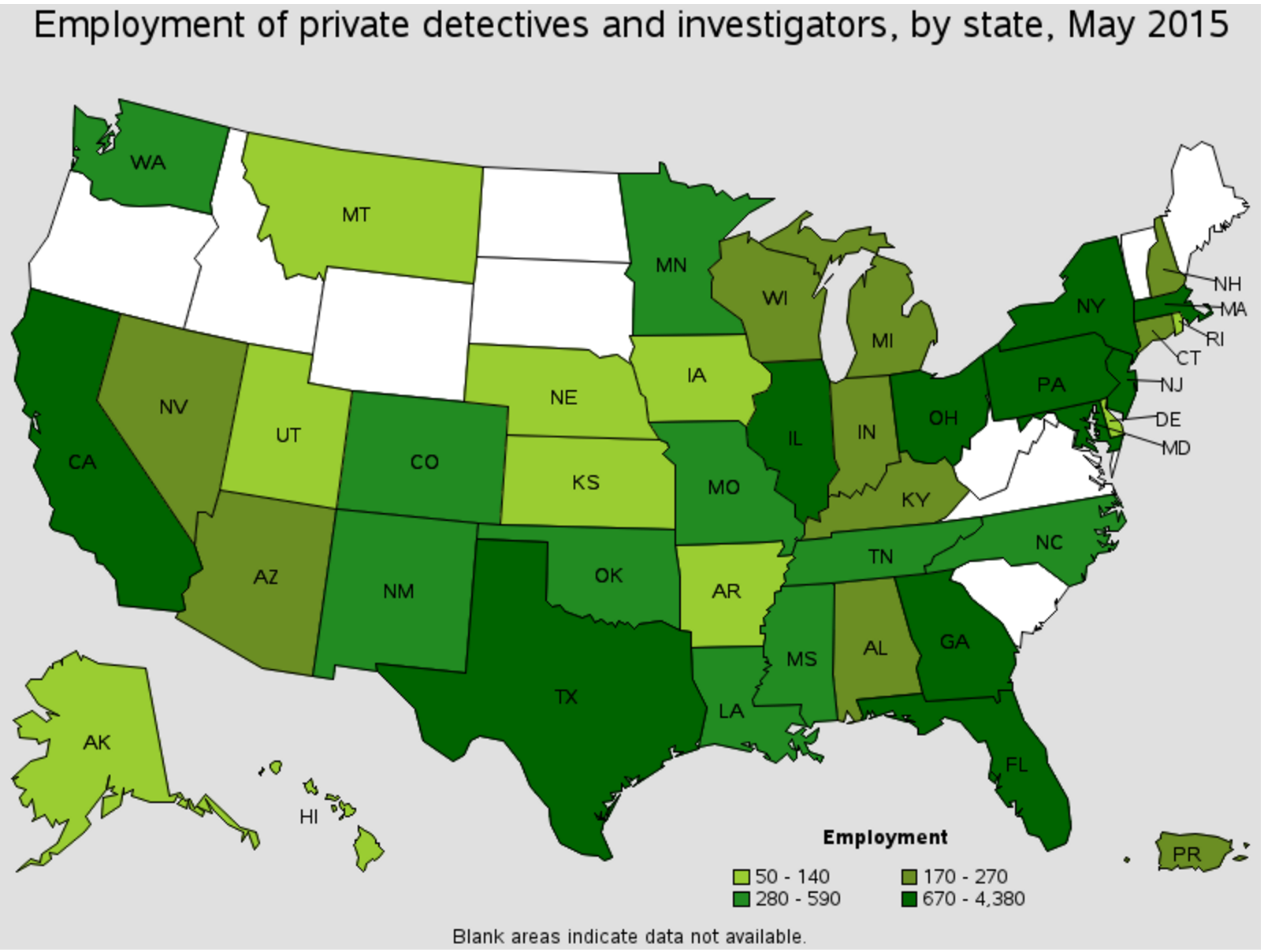
Qualifications to Become a Dover Detective
Detectives come in two kinds. There are private investigators that the general public can hire to investigate on certain things. The others are employed by the government and reach this post after being promoted from a police officer. Here we shall explore both the avenues.
[asd_program_button /]Finish your High School Studies
Due to excellent deduction skills, a deductive is able to take a leap from a police officer to a detective position. Thus, a general way in becoming a detective is to first complete high school and get into the police academy to become a police officer. A high school degree is likewise necessary if you want to be a private investigator.
Get your Bachelor’s Degree
In most cases, enlisting in the police force won’t require a bachelor’s degree. However, some police officers prefer to have one as a means of employment after they retire. Likewise, you will need a bachelor degree if you want to become a detective.
Many institutions require applicants to have a bachelor’s degree in law, criminal justice or psychology to become a detective. If you have an associate’s degree, you will need at least 5000 hours. However, the time required is reduced to 4000 hours if you have a bachelor’s degree.
Gain experience
To become a professional detective (not employed by the state), you need to have some professional experience as an investigator. Fortunately, you have several options available. Getting employed by the government is basically the most common method. If you have any experience as an arson investigator, criminal investigator or a law enforcement investigator, you are qualified as a person with experience. However, you can also choose to work as a licensed repossessor or office investigator.
There might be variations in the required experience in the state you’re applying in. A state might require at least 3 years of experience, but in some it could be as long as 5 years.
Own a gun legally
If an investigator doesn’t have a firearms permit, he won’t be allowed to carry his firearm. Some firearms will need you to undertake a full training course in order to get your permit. Hence, to get a permit for your firearm when working as an investigator, you will need to complete the full training course.
Obtain New Jersey licensure
Once you have fulfilled the requirements, you will need to take a state licensing examination. This test usually contains some multiple choice questions about state laws and some procedures that often need to be carried out. The test is only available for those who want to be private detectives. If you managed to pass, you will become a licensed private investigator.
File for New Jersey insurance
Being a detective is dangerous, hence it is a good idea to get your insurance. This is generally medical insurance of about $10,000. However, it is important to also get a higher amount if you carry a firearm since you need to protect yourself from greater dangers and insure the gun itself.
Simply follow through all steps and you’ll have nothing to worry about. You can now start living the detective life you always wanted. But be careful – as mentioned before, this can be a dangerous line of work. If you want to pursue your dreams, learn all about the requirements and complete them as soon as you can.
Dover Detective Job Description?
Crime Scene Investigation
It will be a detective’s duty to carefully assess a crime scene and come up with the most sensible deduction. It will also include searching for clues and collecting evidences. They will need to keep anything suspicious that might lead to solving the case. To help them deduce a lot of things more quickly and easily, the forensic department will sometimes offer them assistance. To collect more clues and evidence, detectives will need to go door to door and ask any possible eye witnesses.
[asd_program_button /]Criminal Research
An important aspect of a detective’s duties is to research previous case files in their free time. Through this, they can get to the mind of a criminal and discover any hidden clues and patterns. This involves looking into previous case records to allow them to have an insight regarding the behavior of the criminal. This is really helpful when it comes to serial killers. It also helps to identify tactics that a drug cartel might be using thus helping the detectives shut them down. Other general research can help them narrow down a suspect better or deduce the crime scene in a more efficient way.
Accurately guessing the culprit
The whole objective of everything that a detective does is to serve justice to the person who has committed the crime. They will need to have a list of the suspects first before such thing could happen. In some cases, it could include over a hundred people, but there are also cases where there is none. They create this suspect list by drawing conclusions from the evidence gathered at the crime, eyewitnesses, research and a bit of criminal/forensic psychology. By means of getting statements from suspects, detectives are able to narrow down their list. With a narrowed down list, they will then have the suspects admit to their crimes.
Testifying In Court
As part of their final job, detectives will need to make sure justice is served. To help with the process, they are sometimes summoned to the court to testify against the suspect(s). In some cases, they will describe the evidence and how they are connected to the suspect, as well as narrating the possible crime scene. There are also cases where the one at fault will be escorted by the detective.
Dover Private Detectives
The above duties are what a detective is expected to do. The job description of a detective is a bit loose. They are supposed to carry out their client’s wishes to the best of their abilities as far as reconnaissance is concerned. But there are limits which they shouldn’t go beyond when carrying out their duties. Private detectives are often hired for tasks such as gathering evidence from someone, monitoring certain individuals, or even tracking finances. When carrying out duties as a detective, they should make sure not to look suspicious and act like a normal citizen. They are however, not allowed to arrest anyone.
Basically, you can see that the television has been portraying detectives properly for the most part. However, the roles and responsibilities that detectives carry aren’t as easy as they seem. They are never displayed on portrayed on the media or anywhere else. Detectives should make sure to find any clue they could get since a lot of people’s lives lie on them. If you’re really interested with the job, you should start knowing what it takes to be a detective now!
